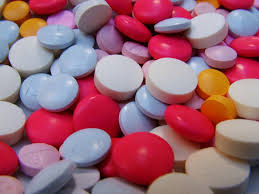Symptom Finder - treatment of Obesity
A. General Principles for Successful Weight Loss:
1. Study patients for hypothyroidism, Cushing disease, and complications of obesity, such as, coronary insufficiency, hypertension, gallstones, and diabetes.
2. Set a goal of a certain weight the patient should achieve by the end of dieting, including how much to lose each week. Generally 1 pound a week is satisfactory.
3. Weigh only once a week or at the time of the doctor’s appointment.
4. Take a one a day multivitamin such as unicaps but beware of high potency vitamins as they may put on weight and increase appetite.
5. Drink at least 4 glasses of water a day. Water is a good appetite suppressant.
6. Regular exercise of walking at least one-half mile a day is recommended. Regular workout at a fitness center is even better.
7. Beware of drugs like antidepressants or birth control pills that might put on weight while you are dieting.
8. Plan with your spouse, friend, or a family member for a special reward (cruise, new clothes, etc.) once you achieve your goal.
B. Diet:
1. A well-balanced diet of 1,000–1,500 calories planned by
an expert dietician is preferred over fad diets. These low calorie diets should have only 30% of the calories as fat.
2. Alternatively, try a special diet the author calls the “Fruit and Vegetable diet.” In this diet, you eat nothing but fruits and vegetables, nuts and peanut butter, and 8 crackers or 4 slices of whole wheat bread a day for 6 days a week. On the seventh day, you can eat anything you want. During the 6-day period, you avoid dairy products, meat, poultry, and fish. By having a break every 6 days, your will power will not be exhausted.
C. Appetite Suppressant:
1. Phentermine resin (Ionamin): 15–30 mg daily.
2. Phentermine (Adipex-P): 37.5 mg one-half to one tablet
daily.
D. Fat Digestion Inhibitor:
1. Xenical (Orlistat): 120 mg tid.
E. Patients who fail to lose weight on a reducing diet should be referred for bariatric surgery.
1. Study patients for hypothyroidism, Cushing disease, and complications of obesity, such as, coronary insufficiency, hypertension, gallstones, and diabetes.
2. Set a goal of a certain weight the patient should achieve by the end of dieting, including how much to lose each week. Generally 1 pound a week is satisfactory.
3. Weigh only once a week or at the time of the doctor’s appointment.
4. Take a one a day multivitamin such as unicaps but beware of high potency vitamins as they may put on weight and increase appetite.
5. Drink at least 4 glasses of water a day. Water is a good appetite suppressant.
6. Regular exercise of walking at least one-half mile a day is recommended. Regular workout at a fitness center is even better.
7. Beware of drugs like antidepressants or birth control pills that might put on weight while you are dieting.
8. Plan with your spouse, friend, or a family member for a special reward (cruise, new clothes, etc.) once you achieve your goal.
B. Diet:
1. A well-balanced diet of 1,000–1,500 calories planned by
an expert dietician is preferred over fad diets. These low calorie diets should have only 30% of the calories as fat.
2. Alternatively, try a special diet the author calls the “Fruit and Vegetable diet.” In this diet, you eat nothing but fruits and vegetables, nuts and peanut butter, and 8 crackers or 4 slices of whole wheat bread a day for 6 days a week. On the seventh day, you can eat anything you want. During the 6-day period, you avoid dairy products, meat, poultry, and fish. By having a break every 6 days, your will power will not be exhausted.
C. Appetite Suppressant:
1. Phentermine resin (Ionamin): 15–30 mg daily.
2. Phentermine (Adipex-P): 37.5 mg one-half to one tablet
daily.
D. Fat Digestion Inhibitor:
1. Xenical (Orlistat): 120 mg tid.
E. Patients who fail to lose weight on a reducing diet should be referred for bariatric surgery.

